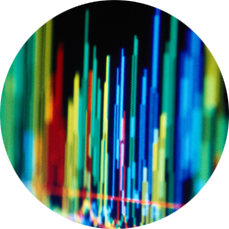 BBB researchers develop broadly applicable biostatistical and computational methods and algorithms for designing and analyzing studies conducted in the Division of Population Health Research (DiPHR) and the Division of Intramural Research. Some of these methods and algorithms are also applicable to research conducted at NIH and in the extramural scientific community. In addition to developing novel methods, BBB members collaborate with DiPHR researchers on almost all aspects of studies, including developing valid and testable scientific hypotheses, designing efficient and powerful studies, analyzing and interpreting the resulting data, and preparing manuscripts for publication.
BBB researchers develop broadly applicable biostatistical and computational methods and algorithms for designing and analyzing studies conducted in the Division of Population Health Research (DiPHR) and the Division of Intramural Research. Some of these methods and algorithms are also applicable to research conducted at NIH and in the extramural scientific community. In addition to developing novel methods, BBB members collaborate with DiPHR researchers on almost all aspects of studies, including developing valid and testable scientific hypotheses, designing efficient and powerful studies, analyzing and interpreting the resulting data, and preparing manuscripts for publication.
The branch's mission is to:
- Develop original biostatistical and bioinformatics research relevant for the research mission of the division and institute.
- Engage in collaborative research with other division, institute, and extramural investigators working in research areas relevant for the division and institute.
- Provide service to the division, institute, NIH, HHS, and other government agencies via consultation, collaboration, and assistance to advance the scientific discipline of biostatistics and the goals of the institute.
- Recruit and mentor highly qualified students and trainees at various stages of their careers to position them for professional careers in biostatistical and bioinformatics research.
Highlights
- Biostatistics and Bioinformatics Branch Fellowship Opportunities (PDF 200 KB)
- Lin, H., Eggesbø, M., & Peddada, S. D. (2022). Linear and nonlinear correlation estimators unveil undescribed taxa interactions in microbiome data. Nature Communications, 13(1), 4946. PMID: 35999204.
 BACK TO TOP
BACK TO TOP